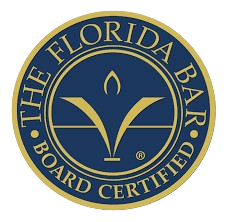In Florida, dining out is a beloved pastime, but what happens when a night out at a restaurant ends in tragedy due to a car accident? The connection between restaurants and car accidents may not be immediately apparent, but Florida law provides specific circumstances under which an establishment can be held liable for accidents caused by its patrons. The key lies in understanding the state’s “Dram Shop Laws” and how they differ from similar laws in other parts of the country.
Understanding Dram Shop Laws
Dram Shop Laws are statutes that allow victims of alcohol-related incidents, such as car accidents, to hold establishments responsible for serving alcohol under specific conditions. These laws aim to promote responsible alcohol service and reduce the risks of harm caused by impaired individuals.
On a national level, most states have Dram Shop Laws, but the nuances of these laws vary greatly. For example, in many states, establishments can be held liable for serving alcohol to someone who is visibly intoxicated, regardless of age. Florida, however, takes a more limited approach, reflecting its unique legal framework.
Florida’s Dram Shop Laws: The Basics
Florida Statute 768.125 governs the state’s Dram Shop Laws. According to this statute, a business that sells or furnishes alcoholic beverages is only liable for damages caused by an intoxicated individual in the following situations:
- The establishment willfully and unlawfully serves alcohol to a person under the age of 21.
- The establishment knowingly serves alcohol to a person who is habitually addicted to alcohol.
This narrower scope contrasts sharply with the broader Dram Shop Laws in states like Texas or New York, where liability can extend to serving visibly intoxicated patrons.
Practical Implications for Restaurants
For Florida restaurants, liability under the Dram Shop Laws primarily hinges on two factors: age and addiction status. Serving a minor or an individual with a known history of alcoholism could open the door to legal claims if that patron causes a car accident after leaving the premises.
Scenario 1: Serving Alcohol to a Minor
If a Florida restaurant knowingly serves alcohol to a minor who then drives and causes a car accident, the victims of that accident may have grounds to sue the restaurant. The term “willfully and unlawfully” in the statute underscores the importance of strict compliance with ID-checking procedures.
Scenario 2: Serving an Alcoholic
Liability also arises if a restaurant knowingly serves a person who is habitually addicted to alcohol. This requirement imposes a higher threshold for proof, as the establishment must have had prior knowledge of the individual’s addiction. Evidence might include prior incidents or records showing that the restaurant was aware of the patron’s condition.
Preventing Liability: Best Practices for Florida Restaurants
Florida restaurants can take proactive steps to minimize liability risks:
- Implement Robust ID Checks: Ensuring no alcohol is served to minors is the most straightforward way to avoid liability.
- Train Staff on Alcohol Awareness: Educate employees on recognizing signs of intoxication and addiction.
- Document Incidents: Maintain records of any incidents involving alcohol service, including refusals to serve or ejecting visibly impaired patrons.
- Adopt a Zero-Tolerance Policy: A strict approach to serving questionable patrons can reduce the risk of lawsuits.
The Role of Awareness During Dry January
Dry January, a month dedicated to abstaining from alcohol, provides an excellent opportunity to reflect on the role of alcohol in our lives and its potential risks. For restaurants and patrons alike, it’s a time to emphasize responsible drinking and reinforce safe habits.
For restaurants, understanding Florida’s Dram Shop Laws becomes especially relevant during this awareness campaign. Promoting non-alcoholic beverage options and educating staff about the legal implications of alcohol service can demonstrate a commitment to public safety. Additionally, encouraging customers to participate in Dry January can foster goodwill and highlight the establishment’s role in reducing alcohol-related harm, including car accidents.
By aligning their practices with the values of Dry January, restaurants not only mitigate risks but also contribute to a broader culture of responsibility and mindfulness.
While Florida’s Dram Shop Laws are more restrictive than those in other states, they still provide a legal pathway for holding restaurants accountable in specific scenarios. By understanding these laws and adopting responsible serving practices, restaurants can protect themselves from liability while contributing to safer roads.
If you or a loved one has been involved in a car accident linked to alcohol service, it’s crucial to consult with a knowledgeable attorney who can help navigate the complexities of Florida law. Contact Rader Law Group for a free consultation at 954-654-7661.











